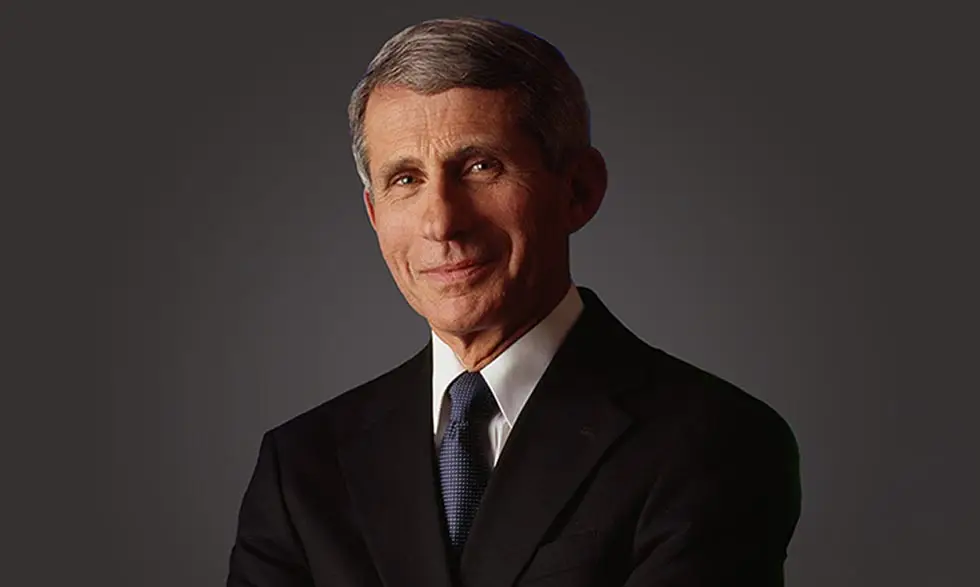
In the realm of public health and infectious diseases, few names carry as much weight as Dr. Anthony Fauci.
A trusted authority on epidemiology and immunology, Dr. Fauci has been at the forefront of the United States’ response to infectious diseases for decades. We’ll explore the life and career of Dr. Anthony Fauci, his crucial role in managing public health crises, and the enduring lessons he imparts.
Early Life and Education
Anthony Fauci was born on December 24, 1940, in Brooklyn, New York. His parents, both of Italian descent, instilled in him a strong work ethic and a commitment to education. These values would become the bedrock of his illustrious career.
Fauci attended Regis High School in Manhattan, a prestigious Jesuit school known for its rigorous academics. He then pursued higher education at the College of the Holy Cross in Worcester, Massachusetts, where he earned his Bachelor of Arts degree in Classics. His interest in science and medicine took root during his time at Holy Cross.
After completing his undergraduate studies, Anthony Fauci attended Cornell University Medical College, where he obtained his Doctor of Medicine (M.D.) degree in 1966. His dedication to medicine and research would soon lead him to a remarkable journey in the field of infectious diseases.
Rise to Prominence
Dr. Fauci’s career path took a fateful turn in 1968 when he joined the National Institutes of Health (NIH) as a clinical associate in the Laboratory of Clinical Investigation at the National Institute of Allergy and Infectious Diseases (NIAID). Little did he know that this would be the beginning of a lifelong commitment to combating infectious diseases.
In 1984, Dr. Anthony Fauci was appointed as the director of the NIAID, a position he holds to this day. Throughout his tenure, he has overseen groundbreaking research on infectious diseases such as HIV/AIDS, influenza, tuberculosis, and more recently, COVID-19.
The HIV/AIDS Crisis
Dr. Fauci’s leadership during the HIV/AIDS crisis of the 1980s and 1990s is widely regarded as one of the most critical chapters in his career. As the director of NIAID, he played a pivotal role in developing and championing the use of antiretroviral drugs, which transformed HIV/AIDS from a death sentence into a manageable chronic condition.
His tireless advocacy for HIV/AIDS research and funding, as well as his compassion for patients, earned him immense respect within the medical community and among those affected by the disease. His commitment to evidence-based science and public health communication became hallmarks of his approach to infectious diseases.
COVID-19 Pandemic Response
Dr. Fauci’s expertise and leadership were once again thrust into the global spotlight during the COVID-19 pandemic. Serving as a key member of the White House Coronavirus Task Force, he provided crucial guidance to the American public throughout the crisis.
His daily briefings, marked by clear and data-driven communication, became a source of reliable information and reassurance during a time of uncertainty. Dr. Fauci’s advocacy for mask-wearing, social distancing, and vaccination played a vital role in mitigating the spread of the virus.
Lessons from Dr. Anthony Fauci
- Commitment to Science: Dr. Fauci’s unwavering commitment to evidence-based science and rigorous research has been a cornerstone of his career. In an era of misinformation, he reminds us of the importance of trusting experts and relying on scientific data to guide public health decisions.
- Effective Communication: Throughout his career, Dr. Fauci has excelled in conveying complex medical information to the public in a clear and accessible manner. Effective communication is a skill we can all learn from, especially in times of crisis.
- Adaptability: Dr. Fauci’s ability to adapt to evolving infectious diseases, from HIV/AIDS to COVID-19, underscores the importance of flexibility and continuous learning in the medical field and beyond.
- Advocacy for Public Health: His lifelong dedication to public health serves as an inspiration for future generations of healthcare professionals. His advocacy for preventive measures and vaccination highlights the critical role public health plays in society.
Legacy and Future
As Dr. Anthony Fauci continues to serve as the director of NIAID and a trusted advisor to the U.S. government, his legacy as a tireless champion of public health and infectious disease research remains firmly intact. His enduring commitment to science, communication, and the betterment of global health serves as a guiding light for all those working to combat infectious diseases and improve public health worldwide.
In conclusion, Dr. Anthony Fauci’s life and career are a testament to the power of science, compassion, and leadership in the face of public health challenges. His journey from a young medical student to a global authority on infectious diseases reminds us of the impact that one individual can have on the world when guided by a deep commitment to the well-being of others.




